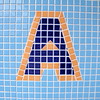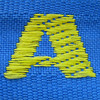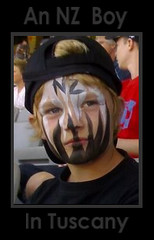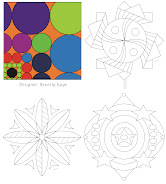Last week I received information in my letter box about the upcoming referendum to take place in New Zealand. The infamous “Anti-Smacking Debate” has reared its ugly head again.
As a teacher of young children, I thought it my duty to respond to this debate – which will no longer be labeled the “Anti-Smacking Debate” on my blog.
Did you know that as of June 2007, the law does not prohibit parents from smacking their children. There are 5 clauses in the Crimes Act that justifies the use of force for good parenting. (I can’t believe I’m admitting that – but it is a fact). The 2007 change in the Crimes Act prohibits parents from smacking their children for the purposes of ‘
correcting’ behaviour. You can read the wording of
section 59 Parent Control,
No 43 of the Crimes ActI believe that the tragedy of the current debate is the wording of the up-coming
referendum question.
Should a smack as part of good parental correction be a criminal offense in New Zealand?This is irresponsibly misleading. New Zealanders are paying $9mil on this referendum and the question has been written poorly and with bias. That alone is criminal!! I do believe it is the responsibility of the government to ensure that the wording of a referendum is unbiased, well worded, and fairly executed.
It is important to understand that: - The law is not about an incidental light ‘smack’.
And therefore the referendum question is immediately flawed. - The law is not about ‘good parental’ practices.
And therefore the referendum question is flawed.
The law is aimed at parents
who hit their children hard enough to end up in court*. It is to prevent those parents from using the purposes of ‘correction’ as a defense.
Rewording the Referendum - my thoughts:
Should parents be legally permitted to use force for the purposes of correcting behaviour?
The term ‘correcting’ and the word 'force' should be defined.
How do you think it should be worded?How would you define ‘correcting’?Debating the Bill leads to debating discipline.
What I do love about the bill and the referendum, is that discipline is up for debate again. It means we get the chance to talk about the ‘discipline’ of children, and we get to advocate for a better way.
As teachers, we are not permitted to hit children.
What would happen if a teacher were to ‘smack’ a child?
- They would be disciplined (not smacked!)
- They would probably loose their job.
- Parents would be irate.
- The teacher would loose the respect of families and colleagues.
Why?
- Because there is a better way to teach children, and as professionals we should know better.
How much more then, should families learn a better way to help their children make good decisions. Smacking is lazy. Smacking is more about the adults coping mechanism than teaching children. And would it be fair to say, that left unchecked smacking can be abusive?
The definition of Discipline is “
the practice of training people to obey rules”.
As teachers we are taught to respect children - (crazy to have to write that). Children naturally deserve respect. Children are capable of thinking, of problem solving, and of empathy. They are competent learners, especially young children who learn so much in the first few years of their lives. It is not so amazing to discover, that when you look for a new way to support your children’s learning, your relationships with your children grow.
Anke Richter (a German Journalist)
wrote an article To Smock is to Love (2007) - an outsiders look at the ‘Child Discipline Bill’. It’s a great read, along with the discussion that follows at the end of the article. Essentially she suggests that by legislating against hitting our children, we begin to implement social change – smacking becomes ‘un-cool’. I believe that when smacking becomes un-cool (and it is so un-cool for many wonderful parents with whom I am associated), parents build richer relationships with their children. ‘Disciplining’ without smacking takes time, patience, and heaps of reflection. And time, patience and reflective thinking is the kind of modeling we need to be sharing with our children.
The citizen initiated referendum takes place in the month of August 2009. It is flawed before it even begins – but that doesn’t mean you shouldn’t vote. Educate yourself about
No 43 Crimes Act, about the
referendum, and about the debate.
* Parental Control Crimes Act explained - pdf download
• NZ Referendum on Child Discipline 2009 - the yes vote





































